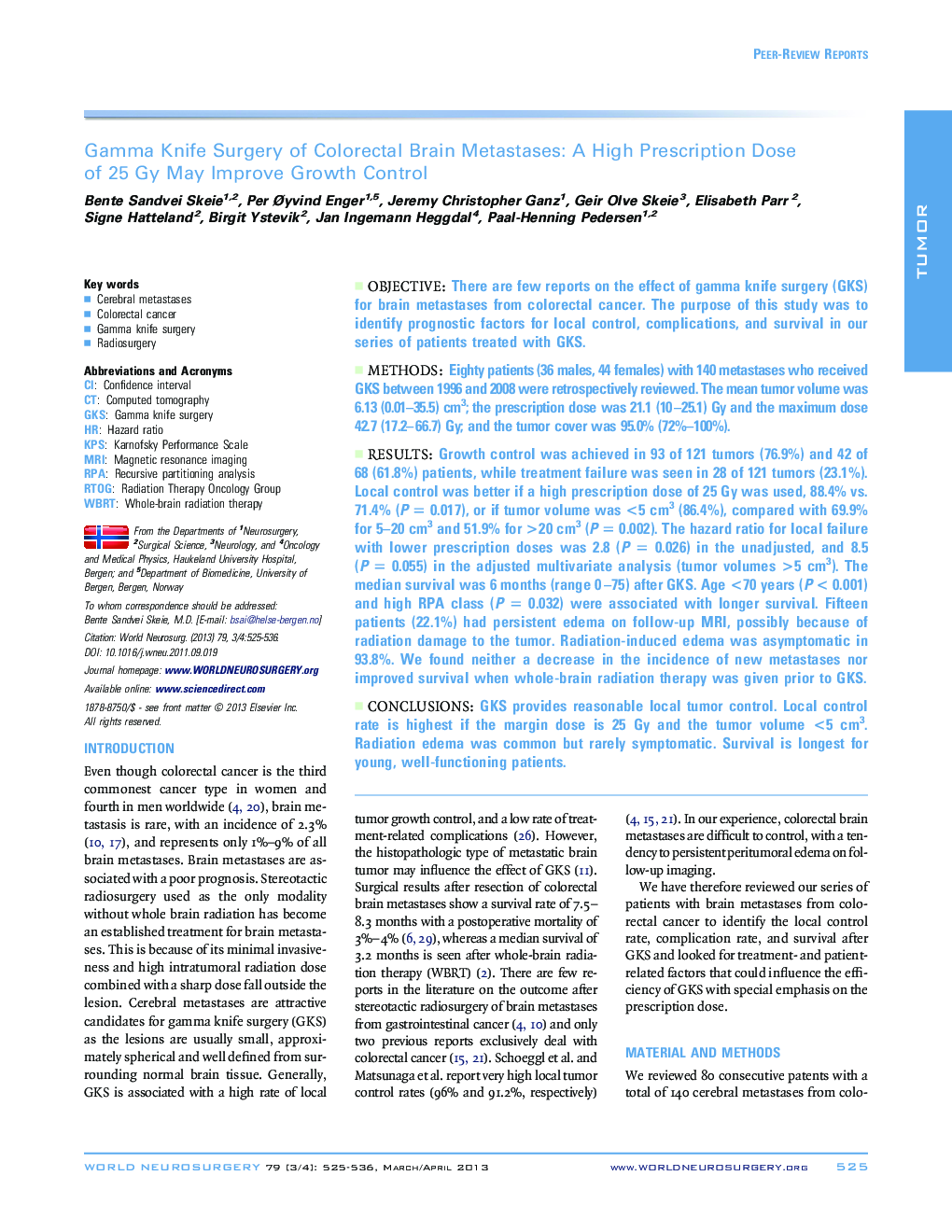| Article ID | Journal | Published Year | Pages | File Type |
|---|---|---|---|---|
| 3096200 | World Neurosurgery | 2013 | 12 Pages |
ObjectiveThere are few reports on the effect of gamma knife surgery (GKS) for brain metastases from colorectal cancer. The purpose of this study was to identify prognostic factors for local control, complications, and survival in our series of patients treated with GKS.MethodsEighty patients (36 males, 44 females) with 140 metastases who received GKS between 1996 and 2008 were retrospectively reviewed. The mean tumor volume was 6.13 (0.01–35.5) cm3; the prescription dose was 21.1 (10–25.1) Gy and the maximum dose 42.7 (17.2–66.7) Gy; and the tumor cover was 95.0% (72%–100%).ResultsGrowth control was achieved in 93 of 121 tumors (76.9%) and 42 of 68 (61.8%) patients, while treatment failure was seen in 28 of 121 tumors (23.1%). Local control was better if a high prescription dose of 25 Gy was used, 88.4% vs. 71.4% (P = 0.017), or if tumor volume was <5 cm3 (86.4%), compared with 69.9% for 5–20 cm3 and 51.9% for >20 cm3 (P = 0.002). The hazard ratio for local failure with lower prescription doses was 2.8 (P = 0.026) in the unadjusted, and 8.5 (P = 0.055) in the adjusted multivariate analysis (tumor volumes >5 cm3). The median survival was 6 months (range 0–75) after GKS. Age <70 years (P < 0.001) and high RPA class (P = 0.032) were associated with longer survival. Fifteen patients (22.1%) had persistent edema on follow-up MRI, possibly because of radiation damage to the tumor. Radiation-induced edema was asymptomatic in 93.8%. We found neither a decrease in the incidence of new metastases nor improved survival when whole-brain radiation therapy was given prior to GKS.ConclusionsGKS provides reasonable local tumor control. Local control rate is highest if the margin dose is 25 Gy and the tumor volume <5 cm3. Radiation edema was common but rarely symptomatic. Survival is longest for young, well-functioning patients.
